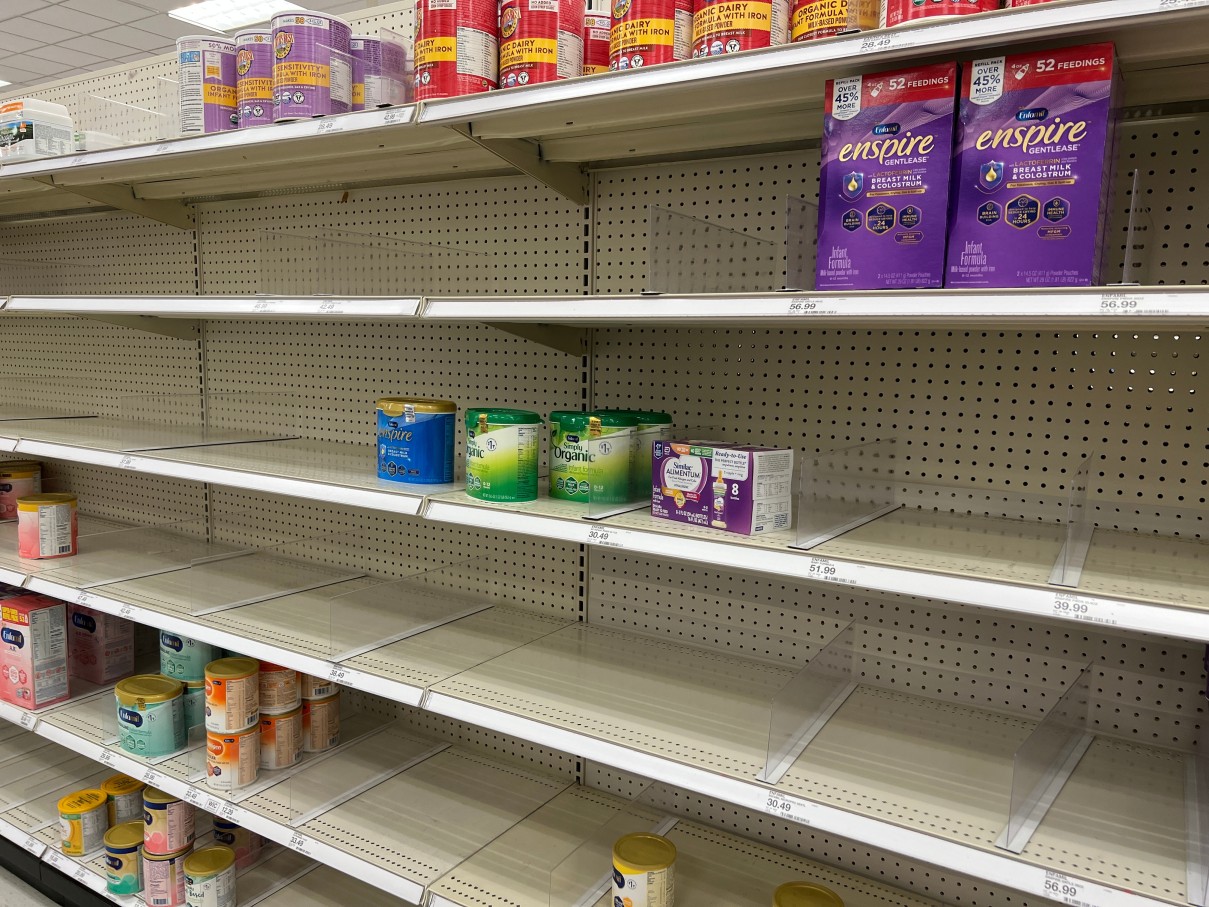A
A
A
When a Michigan factory that made popular baby and infant formula by Abbott shut down in early 2022, an already vulnerable industry was interrupted further, leading to formula shortages across the U.S., which many parents, guardians and caregivers rely on to feed babies, infants and some adults.
What began as a formula recall has transitioned into a national crisis, with babies getting sick, people going without food and parents and caretakers needing to go to extreme lengths to get the formula they need. Datasembly, a data firm, says that at the beginning of the month of May, about 43% of the U.S.’ formula supply was out of stock.
What is Being Done Now?
Read More »
On Sunday, May 22, the Biden Administration began flying in tens of thousands of pounds of formula from abroad in what is being called “Operation Fly Drop” in hops of easing the shortage. The Defense Protection Act went into place, and over 70,000 pounds of Nestle hyperallergic formula arrived in Indiana as part of the country’s first drop.
Also on Sunday, Abott’s CEO apologized for what has happened to every family that has been impacted. They promised that hypoallergenic formulas would be prioritized and that by the end of June, there should be more formula than there was in January, when the recalls first occurred.
The MI plant was closed after children became sick from formula and the government ordered investigations into the factory’s sanitary conditions, finding things not up to par with guidelines. A recall and in-depth monitoring followed. The MI plant is set to open in early June, in agreement that Abbott with send data to the Food and Drug Administration (FDA) as needed to be sure conditions have improved.
What Caused the Shortage?
Once babies got sick, Abbott voluntarily closed the MI plant and issued recalls of the products in question. But the plant produces about 20% of the country’s baby formula. The closure, which did not help the pandemic shortages of formula to begin with, became a crisis in the U.S. due to the market. Only four companies make formula, including Abbott, and high tariffs and taxes mean that little comes from overseas.
Abbott has a contract that supplies formula to 2/3 of the U.S. states and owns the market there. Additionally, a lot of the formula is provided to those who are eligible for the WIC (Women, Infant and Children) program, letting them get formula and food for free. A couple weeks ago, families struggled to find formula on shelves, and things are still tough—stores like Walgreens and Target are limiting formula purchases are struggling to keep shelves stocked. The shortages, according to Abbott, have been the worst in San Antonio, Minneapolis and Des Moines.
The FDA, in particular, remains especially concerned about how things have been going, and is trying to reassure people staff are working all day to ease the shortage.
The shortage has also heightened issues of U.S. maternal support and the growth of children. Critics in countries such as the U.K. have panned the U.S.’ lack of support for new parents and pregnant individuals, all of which have come to the forefront as a result of the shortage. As for what is next, keep an eye on the news and reach out to your network, children’s PCP and area stores to get the formula you need. Hopefully this crisis will ease soon.
Sharing is caring! Did you find this content useful? Feel free to bookmark or to post to your timeline for reference later!






